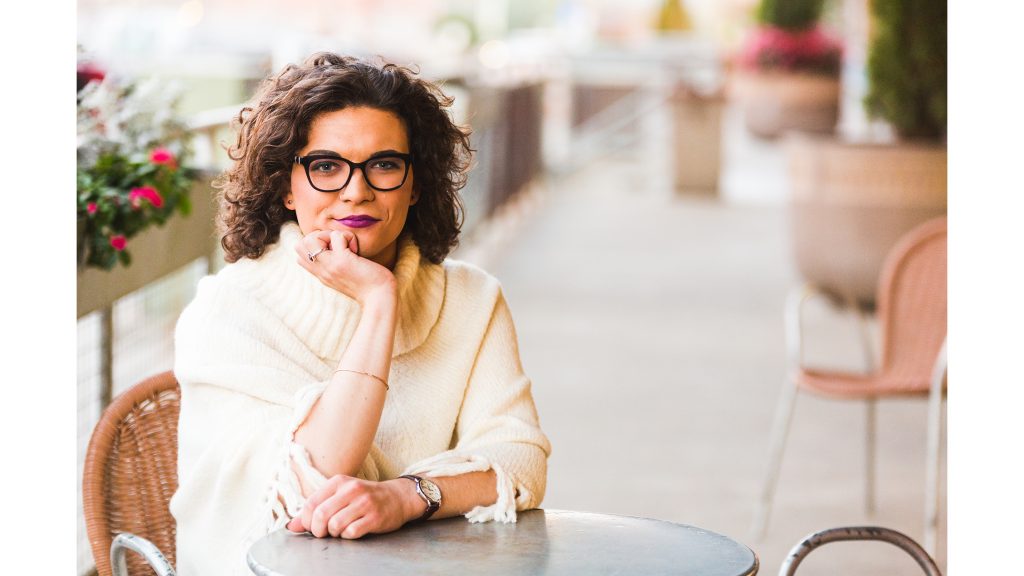Writer and activist a.j.k. o’donnell, who has written two topical and poignant poetry collections, advocates for the queer community and blazed the campaign trail with Hillary Clinton. O’donnell will read from her second poetry collection, This Void Beckons, at 7 p.m. Saturday at High Ground Café, 301 E. Market St.
Her hometown of Omaha bridged the gap between urban and rural for o’donnell. The disillusionment associated with moving frequently as a young adult inspires a strong sense of place in her work. She documents her experiences as a queer youth in her first poetry collection, Nicoteane and Other Foolish Mistakes. These memoir-poetry pieces provide a “unique foundation of understanding the flux of place and time.”
Shortly after high-school graduation, o’donnell received the prestigious Youth Courage Award from the Colin Higgins Foundation. As an advocate for the queer community, o’donnell founded the Coffee Talk Program for queer youth and served as the events coordinator for the Queer Nebraska Youth Network.
“Facing harassment, denial, and disapproval, Andrew stood their ground and stepped out on the other side as a stronger advocate, demanding visibility,” the Colin Higgins Foundation said.
O’donnell began writing the second collection, This Void Beckons, during the 2016 presidential election. While working on the Clinton campaign, o’donnell collaborated with people who both advocated for and challenged her views.
These conversations on the campaign trail inspired portions of This Void Beckons. O’donnell used her artistic platform to start a dialogue on topical issues such as social justice and gender equality.
“[This Void Beckons] is a poetic and artistic self-help book that is not meant to be hinged on the artistry as much as it is on the message,” o’donnell said. “The artistry is an added bonus that the reader can experience on a deeper and emotional level, whereas the book itself is more of a structured guide.”
The way o’donnell uses the page both sonically and structurally in the collection showcases the depth and precision of her artistry. Her minimalist poetry allows readers the opportunity to create themselves on the page.
“I wanted the reader to be experiencing what was happening as if it were them,” o’donnell said. “I wanted people to taste what it felt like to have everything stripped from you.”
The collection successfully breaks the fourth wall. O’donnell deconstructed the barriers between the reader and the narrator when writing the book by asking herself, “How do I teach humanity what goodness is?”
The answer comes in the form of an archetypal journey — one that is both crucial and universal to the human narrative. The book stands as a metaphor for the world we inhabit, providing readers a way into the lives the oppressed and misunderstood. O’donnell threads the concept of intersectionality throughout the book by observing modern life and interrogating the dominant historical narrative.
“[This Void Beckons] includes every possible reader in some form whether it is by spirituality, color of skin, or gender identity,” o’donnell said. “Spirituality in the book means there is someone outside ourselves that binds us that is intersectional solidarity.”
O’donnell wrote portions of the book in the High Ground Café while attending the University of Iowa. She said the social camaraderie between UI students and the rich literary history in Iowa City was invaluable for her progression as an artist. She also worked as a columnist at The Daily Iowan while she was at the UI.



